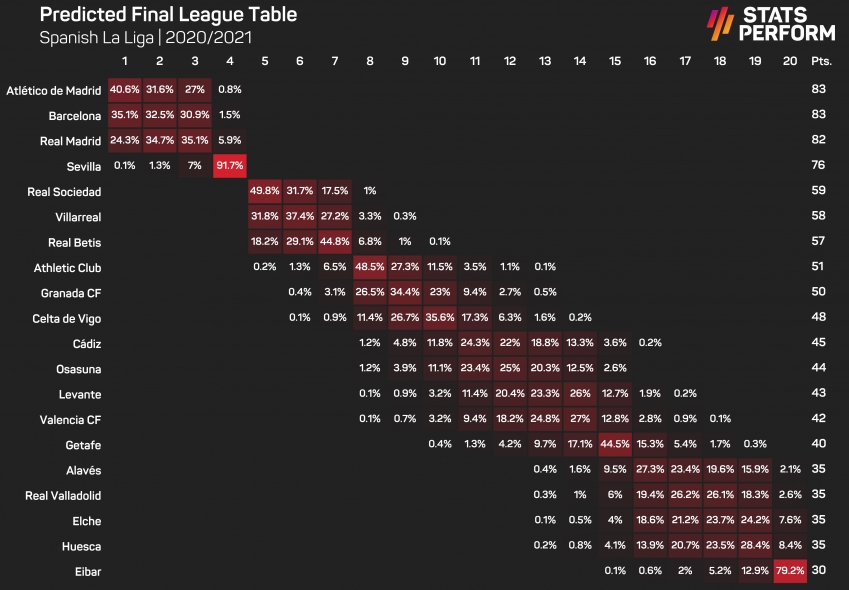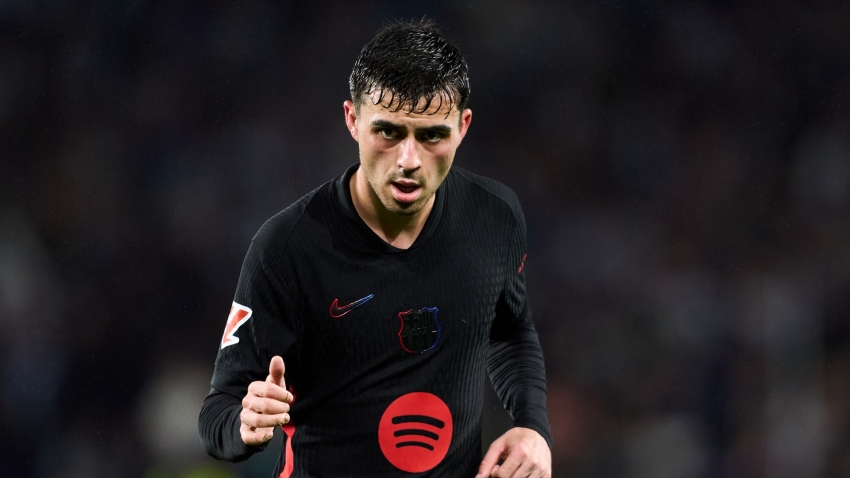Four rounds remaining, four teams involved, and just six points to separate them.
The end of the LaLiga title race looks to be the most gripping to any of the top five European leagues this term, and almost certainly the least predictable finish in Spain since 2006-07.
Back then, there were three teams in with a chance of taking home the title on the final day of the season: Real Madrid and Barcelona, of course, plus Juande Ramos' Sevilla.
As it was, Madrid and Barca won on the last day whereas Sevilla – who needed a win and for the other two to lose – lost at home to Villarreal.
Madrid finished top by virtue of a better head-to-head record over Barca, who were essentially denied the title by their local rivals Espanyol, slumping to a 2-2 draw with them on the penultimate day to hand Los Blancos the initiative.
For the first time since then, Sevilla are again in with a shout of upsetting established order – albeit they trail the leaders by six points – though on this occasion Atletico Madrid are most prominently in the mix.
Diego Simeone's side looked certainties for the title not too long ago: at the start of February, they were 11 points clear, but they've won only seven of their 15 league games since, including a defeat to Sevilla in early April.
Yet, remarkably, it's still in Atletico's hands thanks to Barca's surprise loss at home to Granada last week.
What made that defeat even more incredible was the fact Granada had just 18 per cent of the ball and scored twice from an xG (expected goals) value of just 0.69. This means they netted more than two times as many as they should have, which speaks to how stunningly clinical they were.
Interestingly – or, infuriatingly, if you're a fan – it was Barcelona's second-highest share of the ball in a league game this season, behind only 82.1 per cent against Cadiz. They lost both games.
It's all shaping up for potentially decisive blows to be struck across May 8 and 9, when the top four all play each other – Barca host Atletico on Saturday, with Sevilla going to Madrid the next day.
But what does our prediction model say about the most likely outcome in the title race?
How does the predictor work?
The data model estimates the probability of each match outcome – either a win, draw or loss – based on each team's attacking and defensive quality. Those ratings are allocated based on four years' worth of comprehensive historic data points and results, with more weighting given to recent matches to account for improvements or declines in form and performance trends.
The AI simulation takes into account the quality of the opposition that a team scores or concedes goals against and rewards them accordingly. All that data is used to simulate upcoming matches using goal predictions from the Poisson distribution – a detailed mathematical model – with the two teams' attacking and defending ratings used as inputs.
The outcome of the season is then simulated on 10,000 different occasions in order to generate the most accurate possible percentage chance of each team finishing in their ultimate league position.
Let's say how the model now predicts the final league table will look...
Atletico take the crown
Atletico Madrid are now given a 40.6 per cent probability of winning the title, up from 38 per cent a week ago.
It essentially looks like it will come down to their showdown with Barca. Atletico hold a slight advantage, having beaten the Catalans 1-0 in Madrid in the reverse fixture, and our predictor seemingly doesn't expect Ronald Koeman's men to overturn that at Camp Nou, as the model sees Atletico winning the title by virtue of their head-to-head record.
Barcelona's chances have increased from 32.6 per cent to 35.1, with that surprise defeat to Granada preventing any bigger jump despite their 3-2 win at Valencia.
After drawing 0-0 twice in three games, Madrid's chances dropped from 34.4 per cent to 26.6 per cent last week, and they now sit at 24.3 per cent despite their most recent 2-0 win over Osasuna.
Sevilla, who conceded an injury-time winner to Athletic Bilbao last time out, remain distant outsiders. Our prediction model only gives them a 0.1 per cent probability of winning their first league title since 1946.































